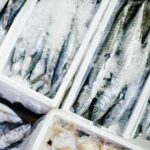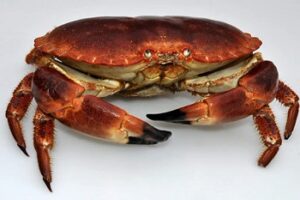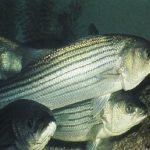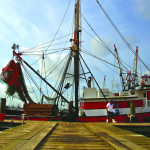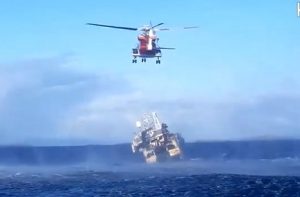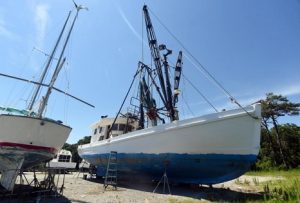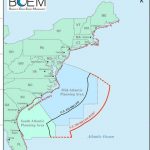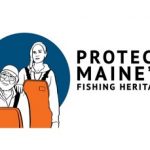Tag Archives: NFFO
UK authorities backtrack on under-10 medical requirement
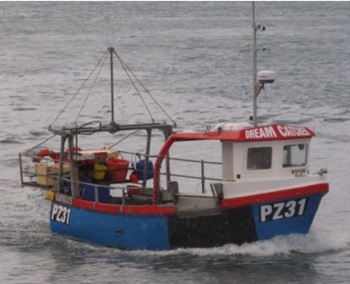 The UK government has announced a partial reversal of its policy on medical certification for fishermen. This follows an extensive campaign by the NFFO, and now anyone fishing for four weeks or more on a UK under-10 vessel between 30th November 2021 and 29th November 2023 is exempt from the requirement to hold a medical fitness certificate. ‘This is a welcome outcome and desperately needed. It is a total reversal in the government’s position on the under 10m fleet and will benefit thousands of fishermen,’ an NFFO representative commented. more, >>click to read<< 06:50
The UK government has announced a partial reversal of its policy on medical certification for fishermen. This follows an extensive campaign by the NFFO, and now anyone fishing for four weeks or more on a UK under-10 vessel between 30th November 2021 and 29th November 2023 is exempt from the requirement to hold a medical fitness certificate. ‘This is a welcome outcome and desperately needed. It is a total reversal in the government’s position on the under 10m fleet and will benefit thousands of fishermen,’ an NFFO representative commented. more, >>click to read<< 06:50
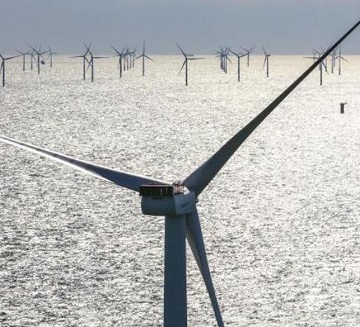
Planned Tenfold North Sea Windfarm Expansion by 2050
The fishing industry is alarmed by drastic plans to massively increase windfarm capacity in the North Sea. Fishing industry leaders already fighting to retain fishing grounds for their members are deeply alarmed by the plans to increase of offshore wind power by ten times current levels by 2050, to develop ‘energy islands’ of interconnected sites and carbon capture projects. Mike Cohen, chief executive of the National Federation of Fishermen’s Organisations (NFFO), said the development would be on the agenda for discussion at the next meeting of the international fishermen’s movement, the Northern Fishing Alliance (NFA), which represents fishermen from six countries fishing in the North Sea. >click to read< 12:38
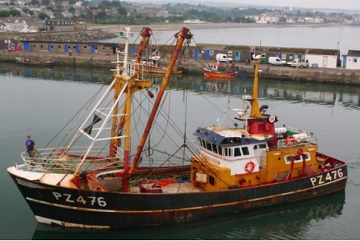
Angry and frustrated
‘What was delivered in terms of additional fishing opportunities and control over access was very far from what any self-respecting coastal state might expect,’ an NFFO representative commented. All the same, the NFFO remains certain that ‘escaping the dead clutches of the overcentralised and cumbersome Common Fisheries Policy’ is regarded by many as a major positive – ‘although a huge amount of work remains to be done to realise the benefit of this new framework, especially through the development and implementation of fisheries management plans, it is a huge opportunity.’ The NFFO states that against this background, it is disappointing that the promised agility of the new framework to deliver effective and timely outcomes has been thwarted by the UK’s own legislative systems. >click to read< 10:14
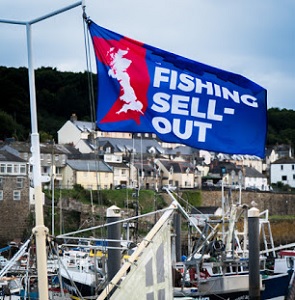
NFFO hits the UK Government for betrayal of the fishing industry during the Brexit negotiations
There are some in the fishing industry whose trust in the Government has been irrevocably shattered. The fishing industry was given assurances from the top of government, the Prime Minister, senior cabinet ministers and Chief Negotiator himself, Lord Frost, that our industry would not be sold out in negotiations with Europe, as it had been by Edward Heath in 1973. There was always a risk. Even when the fishing industry was used as the poster-child for Brexit, the NFFO paid for and distributed thousands of flags bearing the message,,, >click to read< 08:45
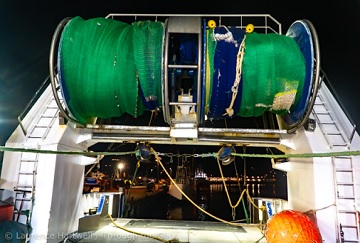
Is Fly Shooting the new Electric Pulse Fishing?
NUTFA has been receiving reports of the increasing number of fly shooters operating initially in the eastern Channel but now fishing as far as western waters for a couple of years now. From initial reports of relatively small numbers of these vessels taking significant quantities of Bass, suddenly we seem to have a vast fleet [75] of high powered fly shooters working our waters, everywhere from the eastern Channel through to western waters, all licenced by the MMO, despite the fact that they admit to not having complete catch records for this method in these waters, reliant instead on member state data, including that from France who have been penalized in the past for failures to provide accurate information in this respect. >click to read< 23:06

MPA Fishing Ban: Another Industry Sell-Out,,, For what? Big Wind, or Conservation?!!
The NFFO has hit back at the Marine Management Organisation’s announced intention to outlaw towed gears in the Dogger Bank SAC and the majority of three other offshore MPAs, describing the move as a ‘further sell-out of fishing’. Describing the announcement as a shocking development, ‘Not even lightweight seine nets are to be permitted,,, The proposals amount to a further sell-out of fishing. It augers ominously for other areas and for fishing communities in our increasingly crowded seas.’ Many will now be asking what has changed. They will also be asking how the government can permit the development of four of the largest wind farms in the world on the same site but take such a sledgehammer to fishing. >click to read< 14:47
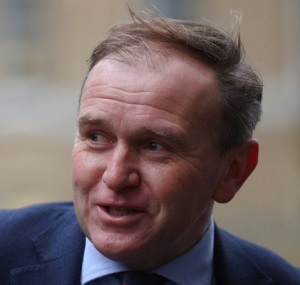
Bottom trawling ban for key UK fishing sites
The Marine Management Organisation says it plans to safeguard fishing areas in Dogger Bank and South Dorset by completely banning bottom trawling. The sites are already designated as protected areas,,, Greenpeace recently dropped concrete blocks on to Dogger Bank. The MMO is consulting on proposed by-laws prohibiting bottom-towed gear on the sites. The consultation runs to 28 March 2021.,,, The NFFO described the proposals as having delivered “a sledgehammer to fishing”. “This punishing reversal comes on the back of the government’s failure to deliver on fishing in the Brexit negotiations, and damaging delays in the export of fish and shellfish. >click to read< 13:55
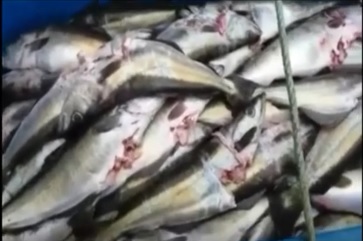
Do seals affect your commercial fishing activity?
Seals eat approx 7% of their body weight when they eat – say 24lbs. Unfortunately, seals don’t necessarily eat the whole fish that they pick from fishermen’s nets – they tend to take a single mouthful from each fish – often to get at the liver – especially with fish like hake. To this end the NFFO are carrying out a survey and encourage all those fishermen who have been affected to take part. This survey is for commercial fishermen in England about their experiences of interactions with seals (seals feeding on catches, damage to gears and entanglement). Your responses will help us better understand the extent of seal–fishery interactions around the country and identify options for non-lethal measures to reduce these interactions. Participation in the survey is voluntary. Video, >click to read<08:58
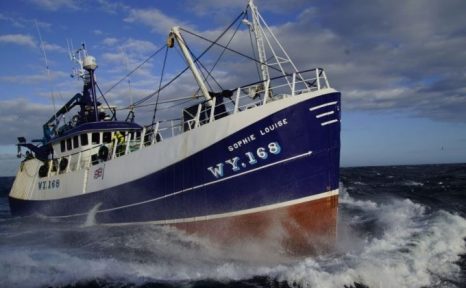
Are Days at Sea the Answer?
Recently, the argument that, after the UK has left the EU, effort control (days at sea limits) could replace quotas as the main management tool in the mixed demersal fisheries, has been finding some currency. It is not difficult to see the appeal. At a stroke, the discard problem would be solved, as vessels could land everything that they catch. The messy business of quota management, with its fixed quota allocations, swaps, leasing, top-slicing etc. could be dispensed with overnight. Instead, vessels would be given an annual allocation of days at sea. Full stop. In some versions of the theory, quota shares are converted into effort shares, which admittedly makes things more complex than a flat-rate number of days for every vessel in the fleet. But before we take the leap of ditching the messy quota system let’s have a look at the other side of the coin. There are a few reasons why effort might not be the road that we want to go down. Here are some of the counter-arguments: Read the article here 12:55
NFFO Fights Back against Appeasement
 The National Federation of Fishermen’s Organisations, which represents fishermen in England, Wales and Northern Ireland, has launched a blistering attack on UK Fisheries Minister George Eustice, after he made quota concessions to appease nationalist pressure from Scotland during the annual quota negotiations in Brussels. 1500 tonnes of English quota has been taken from the Humberside based Fish Producers Organisation and promised to Scotland without consultation or notice. Also, George Eustice is “consulting” on a revised concordat between the devolved administrations. If implemented, the concordat would mean the transfer of almost the entire English North Sea whitefish fleet into Scottish administration, along with its licences and quota allocations. The NFFO regards as a bogus consultation because the Scottish minister has already announced that the concordat will be implemented as written. The NFFO statement says, “All this is being done behind closed doors, in secret. English fishing interests are being systematically traded away to appease the clamour from Scotland. It stinks. Read the rest of the story here 21:27
The National Federation of Fishermen’s Organisations, which represents fishermen in England, Wales and Northern Ireland, has launched a blistering attack on UK Fisheries Minister George Eustice, after he made quota concessions to appease nationalist pressure from Scotland during the annual quota negotiations in Brussels. 1500 tonnes of English quota has been taken from the Humberside based Fish Producers Organisation and promised to Scotland without consultation or notice. Also, George Eustice is “consulting” on a revised concordat between the devolved administrations. If implemented, the concordat would mean the transfer of almost the entire English North Sea whitefish fleet into Scottish administration, along with its licences and quota allocations. The NFFO regards as a bogus consultation because the Scottish minister has already announced that the concordat will be implemented as written. The NFFO statement says, “All this is being done behind closed doors, in secret. English fishing interests are being systematically traded away to appease the clamour from Scotland. It stinks. Read the rest of the story here 21:27
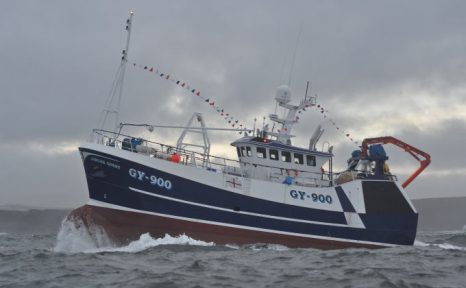
Brexit – Entering uncharted territory,turbulent waters, with challenges and perhaps also opportunities.
Two things can be said with certainty: 1. At this stage there are more questions than answers 2. In this new world, fishermen will need a strong, cohesive, national organisation to defend their interests during the upcoming transition It is not difficult to understand the strong anti-EU sentiments within the UK fishing industry. The European Commission has too often behaved with arrogance, and the EU Parliament with ignorance, to escape their share of the blame. To understand this, you need to go no further that the Commission’s proposed EU ban on small-scale drift nets – to solve an enforcement problem in Italy but which if adopted would have extinguished many sustainable, viable small-scale fisheries in the UK. This is but one example which just illustrates the roots of the frustration that has built over many years. Read the rest here 14:41
#CatchOfTheDay – Tony Delahunty, Chairman of the NFFO writes about the idea behind the #CatchOfTheDay campaign.
 There is a common misperception that it is just the large trawler boats which supply us with fresh fish. The truth is that the UK has a diverse fishing fleet and smaller boats like my own are just as important for the supply of this sustainable food source. As a fisherman myself, I have seen the industry evolve over the past 40 years with consumers and chefs becoming more adventurous with their choices of fish, although the UK’s top three choices are still unsurprisingly cod, haddock and salmon. Read the rest here 09:50
There is a common misperception that it is just the large trawler boats which supply us with fresh fish. The truth is that the UK has a diverse fishing fleet and smaller boats like my own are just as important for the supply of this sustainable food source. As a fisherman myself, I have seen the industry evolve over the past 40 years with consumers and chefs becoming more adventurous with their choices of fish, although the UK’s top three choices are still unsurprisingly cod, haddock and salmon. Read the rest here 09:50
Get On Board with #CatchOfTheDay!
 Members of the UK fishing industry are being encouraged to get on board with a forthcoming campaign designed to champion the diversity and sustainability of many species landed by the UK fishing fleet in a week-long Twitter campaign set to take place in March. Running from Monday 16 March until Friday 20 March 2015, the campaign will encourage people to share photos and videos which either represent their involvement in the industry or celebrate the fantastic variety of sustainable fish now available to UK consumers. Read the rest here 09:52
Members of the UK fishing industry are being encouraged to get on board with a forthcoming campaign designed to champion the diversity and sustainability of many species landed by the UK fishing fleet in a week-long Twitter campaign set to take place in March. Running from Monday 16 March until Friday 20 March 2015, the campaign will encourage people to share photos and videos which either represent their involvement in the industry or celebrate the fantastic variety of sustainable fish now available to UK consumers. Read the rest here 09:52
Does the size of a boat matter?
 Do fishermen within the small boat sector get the representation they deserve and do they even want or need that representation? Firstly to share a lovely quote I often use when discussing difficult issues facing fishermen, when it appears that they are not all that interesting in engaging. “If you as a fisherman do not take an interest in your own future, someone else sure as hell will.” That of course applies equally, to the bigger boat sector. Read the rest here 20:55
Do fishermen within the small boat sector get the representation they deserve and do they even want or need that representation? Firstly to share a lovely quote I often use when discussing difficult issues facing fishermen, when it appears that they are not all that interesting in engaging. “If you as a fisherman do not take an interest in your own future, someone else sure as hell will.” That of course applies equally, to the bigger boat sector. Read the rest here 20:55
NFFO – MARIA Damanaki’s impact as the EU Fisheries Commissioner is not as impressive as she believes
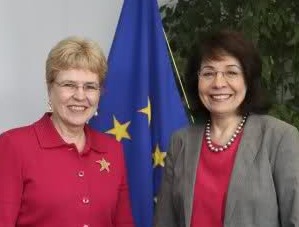 With the Commissioner coming to the end of her tenure, two facts are important in judging the Commissioner’s legacy, the NFFO argues.,,”The other principal claim to posterity made by the Commissioner’s self-promotion machine is that she is ‘the woman who ended the scandal of discards in Europe.’ “The facts point to a different conclusion. Read the rest here 07:51
With the Commissioner coming to the end of her tenure, two facts are important in judging the Commissioner’s legacy, the NFFO argues.,,”The other principal claim to posterity made by the Commissioner’s self-promotion machine is that she is ‘the woman who ended the scandal of discards in Europe.’ “The facts point to a different conclusion. Read the rest here 07:51
Agenda Driven BS: Call to resurrect Marine Conservation Zones is a ‘Mishmash of Misinformation and ignorance’
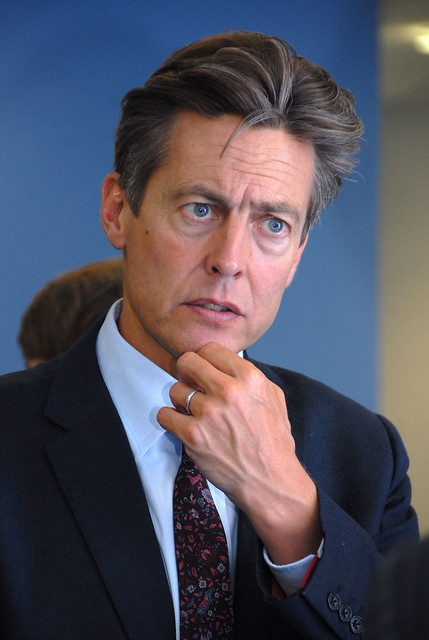 Ben Bradshaw’s letter in the Independent on Sunday is a call to arms for the immediate designation of 127 marine conservation zones across UK waters, supposedly designed to protect our seas against a ‘climate change battleground’. The signatories to Ben Bradshaw’s letter should know better. Indeed many of them do know better but chose to go along with a simplistic campaign because it carries a clear but misleading slogan which they hope the public will support. Read the rest here 08:41
Ben Bradshaw’s letter in the Independent on Sunday is a call to arms for the immediate designation of 127 marine conservation zones across UK waters, supposedly designed to protect our seas against a ‘climate change battleground’. The signatories to Ben Bradshaw’s letter should know better. Indeed many of them do know better but chose to go along with a simplistic campaign because it carries a clear but misleading slogan which they hope the public will support. Read the rest here 08:41






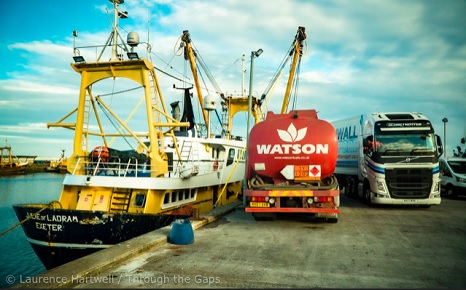
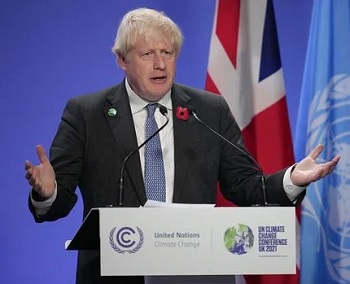
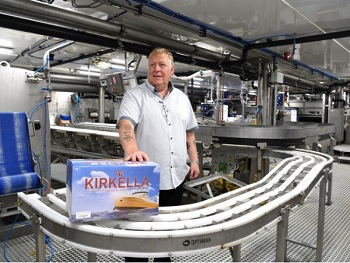
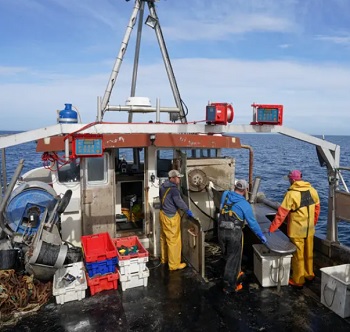
 NFFO Chief Executive, Barrie Deas argued that there is no crisis in fish stocks in our waters that would justify anything like the 60% quota cuts proposed for some of our most important quotas. The science is quite clear. Since 2000, there has been a dramatic (in the region of 50%) reduction in fishing pressure for all the main species groups, right across the north East Atlantic,
NFFO Chief Executive, Barrie Deas argued that there is no crisis in fish stocks in our waters that would justify anything like the 60% quota cuts proposed for some of our most important quotas. The science is quite clear. Since 2000, there has been a dramatic (in the region of 50%) reduction in fishing pressure for all the main species groups, right across the north East Atlantic, 




























